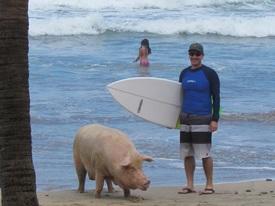"A Short Cut To The Long Run"

BrianSharpe
Posts: 9,247 Member
Interesting article from competitior running came up in my newsfeed.
"Most running experts agree that it’s impossible to run a successful marathon without completing some long training runs first. But how long is long? American runners typically aim for 20 miles. Runners on the metric system, however, often peak at 30 kilometers, which is only 18.6 miles. And Keith and Kevin Hanson, coaches of the Hansons-Brooks Distance Project, design marathon training plans for most of the sub-elite runners they coach that regularly culminate in a mere 16-miler—and by all reports they work quite well."
Full article: http://running.competitor.com/2012/09/training/a-short-cut-to-the-long-run_32317
I haven't run a full marathon yet and the idea of not having to do 20 mile runs during training is appealing. Experienced marathoners......your thoughts?
"Most running experts agree that it’s impossible to run a successful marathon without completing some long training runs first. But how long is long? American runners typically aim for 20 miles. Runners on the metric system, however, often peak at 30 kilometers, which is only 18.6 miles. And Keith and Kevin Hanson, coaches of the Hansons-Brooks Distance Project, design marathon training plans for most of the sub-elite runners they coach that regularly culminate in a mere 16-miler—and by all reports they work quite well."
Full article: http://running.competitor.com/2012/09/training/a-short-cut-to-the-long-run_32317
I haven't run a full marathon yet and the idea of not having to do 20 mile runs during training is appealing. Experienced marathoners......your thoughts?
0
Replies
-
I believe this is true which is why I do all my long runs at a very sedate pace with a group. I am counting on the other aspects of the training plan making up for not doing that run at a faster recommended pace. We'll see how this works in my Nov marathon.
I think these two points are key:
1. " total weekly mileage is more important than the distance of the long run in marathon training."
2. " Another way to get the benefits of 16- to 20-mile runs from 10- to 14-mile runs is to crank up the intensity of those shorter workouts."
So - the higher your weekly mileage the less important the long run. AND - Run at least one 10-14 mile run during the week (90 minutes at higher intensity) I take that to mean at paces approaching marathon pace.
The second part is pretty easy to do if you're doing the first part because to attain high mileage some of the runs have to be 10 or more miles anyway.0 -
Thanks Scott, that's what I was hoping to hear. When I read the article it made sense intuitively.0
-
Thanks Brian.
That's very interesting. The trail running group that I'm in does "back to back" runs on Sat and Sun to help simulate the muscle depletion of a single very long run. This fits with the theory of total mileage being more important the long run distance.
Hopefully, I can run again soon. All this running talk is pretty gut wrenching when I can't get out there and do it.0 -
I completely agree with Scott.
That being said, I think the appeal of the 20 miler or longer(some people think the 20 miler is too short) is the mental aspect. Physically, I don't believe the 20 miler is needed.0 -
I totally do NOT believe in that thinking. For me personally, that 20 miler is crucial. That's when things really start to hurt physically. Not to mention the mental aspect of it all. And then there's the whole other 6.2 miles to knock out. IMO, don't discount those long runs!0
-
I totally do NOT believe in that thinking. For me personally, that 20 miler is crucial. That's when things really start to hurt physically. Not to mention the mental aspect of it all. And then there's the whole other 6.2 miles to knock out. IMO, don't discount those long runs!
Ask those that have ran a full or a few fulls......the wall is at 20, breaking through it and finishing strong in as much mental as physical. Having a few runs 20 or more miles under your belt with help your mental game....you will have been there before. With that said, I am running my 2nd 20 miler this weekend in preperation for the MCM. Last comment, we are all different, you have to find what works for you...0 -
Speaking from personal experience, I have found the benefits of the 20 miler decrease as my overall volume of training increased.
During my last marathon training cycle, I did 2 20 milers back to back and then the next longest was a 17 miler. everything else was 15 - 16 but with lots of quality work and a great deal of day before long run workouts exceeding 10 miles (and WORKOUTS not runs).0 -
My question about the article is, why is the runner on the wrong side of the road?
I don't have any experience with training for a marathon with the long run capping out at significantly less than 20 miles. I have done at least 21 in the three marathon training cycles I have been through (currently nearing the end of the third). I completely agree that the cumulative mileage is the key to better performance. My total weekly mileage has increased with each cycle. The second marathon was better than the first. I can't comment yet on the third.
What I have noticed is that the 20 mile runs are not nearly as daunting nor as taxing this time around. I have been able to complete them with (relative) ease and have not taken as long to recover. Like Brandy, I have also done workouts the day prior to the long run, with no ill effects. So, not only is cumulative weekly mileage a factor, but so to is mileage over time period. I couldn't have handled this volume and intensity when training for my first marathon. But now, over 5000 miles later, I have not on the fitness, but the strength to handle it.
So, yes, it may be possible to develop a plan to run a marathon without doing a 20. I don't know if it will be as effective and I think it would be very difficult to test this as there are so many other variable involved. But I know that plans with 20s work. Is it because of the confidence gained from being on your feet for 3 hours or is it because you are hitting the specific systems that you need to develop to complete the distance? Who knows. I plan to stick with what I know works. I'm not looking for a shortcut to success.0 -
I often run on the wrong side of the road because of the camber on the road - if I don't switch it up, I get hip pain. That road looks beautifully flat, but looks can deceive. She's retroreflective, fluorescent, and in daylight, I wouldn't imagine she's incurring additional risk she couldn't avoid by using her ears to listen for traffic behind her.
On the strategy - Something I've noticed in training up big distances, there's a difference between hearing the idea that "if you can run halfway, you can finish" and living it. Maybe I'm wierd, but every time I increase my distance substantially, I encounter strange things - odd aches, things that rub funny, joints that go wierd for a mile or two then stop, gut gurglings, etc. Just some new physical experiences that, on the relative low pressure and comfort of training runs, I'm glad to have encountered and better understood BEFORE race day.
However after I've run that distance a few times, say three times or so, I no longer view that distance as an issue. It is something that I know I can swing, save catastrophic physical injury like a broken leg, as long as I train appropriately before hand. Sure race day may bring me some new discomfort, but I'm more likely to see it as temporary and more a feature of that specific experience than some inherent limit in myself. I don't think the article is saying NOT to train up the long runs before the race, but that it's not necessary if you train smart - provided you've got some experience at the distance you're racing.
On the third page of the article, it even says "The schedule on the left is a good fit for runners whose goal is to finish a marathon. The schedule on the right is best for runners who have completed at least one marathon previously and want to improve their time in the next." That indicates to me they're making a distinction between new marathoners who may benefit the most from a 20 mile run or two, and experienced people who already have the mental game down.0 -
I think it's because it makes a better picture with her next to the mile marker sign. :happy:I often run on the wrong side of the road because of the camber on the road - if I don't switch it up, I get hip pain. That road looks beautifully flat, but looks can deceive. She's retroreflective, fluorescent, and in daylight, I wouldn't imagine she's incurring additional risk she couldn't avoid by using her ears to listen for traffic behind her.0 -
I totally do NOT believe in that thinking. For me personally, that 20 miler is crucial. That's when things really start to hurt physically. Not to mention the mental aspect of it all. And then there's the whole other 6.2 miles to knock out. IMO, don't discount those long runs!
That crossed my mind too - perhaps the shorter runs prepare you physically for the run but not necessarily mentally. One comment made on another triathlon board i belong to suggested that this program was probably well suited to a more experienced marathoner but may not be suitable for a newbie like me for this very reason.0 -
I totally do NOT believe in that thinking. For me personally, that 20 miler is crucial. That's when things really start to hurt physically. Not to mention the mental aspect of it all. And then there's the whole other 6.2 miles to knock out. IMO, don't discount those long runs!
That crossed my mind too - perhaps the shorter runs prepare you physically for the run but not necessarily mentally. One comment made on another triathlon board i belong to suggested that this program was probably well suited to a more experienced marathoner but may not be suitable for a newbie like me for this very reason.
it is all dependent on your volume and experience for sure. I personally think that a 16 miler after 12 mile hill workout is a) harder and b) more beneficial then doing a 20 on fresh legs - both physically and mentally0 -
Personally I need 20 milers (run on tired legs) to run a good marathon. We should all figure out what works best for each of us.
I'm just not sure how useful the training methods of the elites are to the rest of us. The Hanson runners are back in their hotel, showered and napping by the time I am finishing....0 -
Personally I need 20 milers (run on tired legs) to run a good marathon. We should all figure out what works best for each of us.
I'm just not sure how useful the training methods of the elites are to the rest of us. The Hanson runners are back in their hotel, showered and napping by the time I am finishing....
^^^ Ditto for me. I need to run three 20-milers to feel comfortable that I am prepared properly. (I actually run 20 mile, 21 mile and 22 miles now with three weeks in between each. And a three week taper. This has worked well for me. I'm not so sure that it's totally JUST a mental thing either. I think it prepares my legs for the last few miles when your legs are just pooped out and you still have 4 to 6 more miles to go.0 -
I'm training for my 2nd marathon, and I have to say that without the long runs, I'd have been horribly unprepared. I think for those of us that are newer to running or the distances involved that the 20milers are important. Unless of course you're already horribly fit! For me, as a non-competitive plodder, just having the experience of running for 5 hrs before the full was vital- it was a confidence thing. Saying that, I also have a friend who is a natural and ran the full with me. She did maybe 10 weeks of training, maybe 3 runs a week (2x 7k and a long run), with her longest run being about 15 miles. And she kicked that marathons *kitten*. Finished it in 4hrs. I did all the training and it took me nearly 6.5 hrs. So it's doable. I will still continue with my long runs though:-)0
-
Personally I need 20 milers (run on tired legs) to run a good marathon. We should all figure out what works best for each of us.
I'm just not sure how useful the training methods of the elites are to the rest of us. The Hanson runners are back in their hotel, showered and napping by the time I am finishing....
^^^ Ditto for me. I need to run three 20-milers to feel comfortable that I am prepared properly. (I actually run 20 mile, 21 mile and 22 miles now with three weeks in between each. And a three week taper. This has worked well for me. I'm not so sure that it's totally JUST a mental thing either. I think it prepares my legs for the last few miles when your legs are just pooped out and you still have 4 to 6 more miles to go.
but you don't say what you are doing before your long run. If you are doing 50-80 miles a week and a quality run before your long run, your legs are already pooped.0 -
I think how you train depends on so many factors.
One of my friends has followed the Hanson Brooks plan for her last 2 marathons and PR'd each time. Me? I break down running that many days per week and my injuries just pile up. I followed the Furman FIRST training program (only running 3x per week) and PR'd in my June marathon by almost 15 minutes. When my friend and I were comparing total weekly mileage they came out almost the same but she was running 6 days a week and I was running 3.
I do think there is a real mental thing about going that 20 mile distance. I just ran a marathon on Sunday with my mom, it was her first marathon. I know she struggled those last 6.2 miles because it's just such a big distance to add to your longest previous run. It was my 6th marathon and I didn't fear the distance the way I had in my first couple.0
This discussion has been closed.











